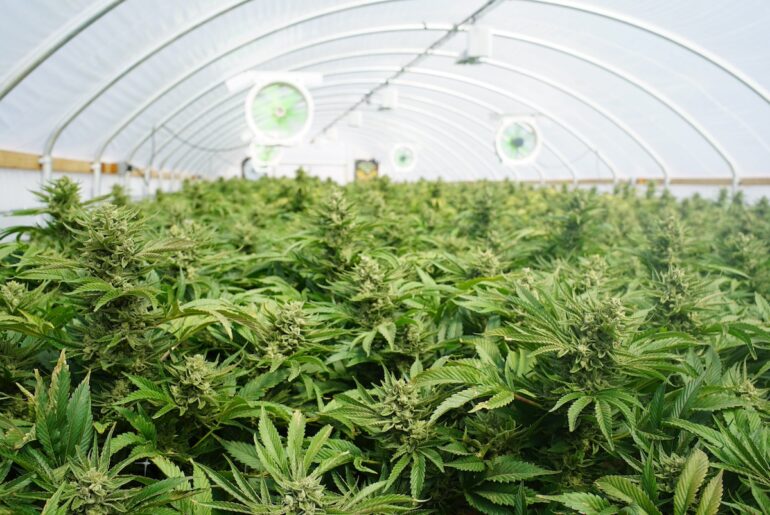Amid rising tensions in both the House and Senate and the looming threat of a government shutdown, House Republicans have proposed a temporary extension to the Farm Bill that would ease the pressure currently on the hemp industry.
The bill, which has now been signed into law by President Biden, simply extends the existing provisions of the Farm Bill until the end of September 2024, leaving the hemp industry under current rules until lawmakers tackle the issues next year.
This isn’t a “victory” for the hemp industry – because existing issues such as the total lack of clarity will persist – but it offers a bit of breathing room that might make it feel like one.
The Current Governmental Chaos in a Nutshell
The news for the hemp industry is impossible to disentangle from the broader issues facing the House of Representatives in particular. So here’s a lightning recap of what’s going on.
Ex-House Speaker Kevin McCarthy was ousted in early October following his work to pass a stopgap funding bill in September and prevent the government from shutting down. However, this bill only keeps things running until November 17th, and the tensions in the Republican Party remain. After eventually agreeing on a new House speaker, Mike Johnson proposed another stopgap bill that works in two stages, extending funding until January 19th for agriculture, military construction, housing and transportation, and extending funding for the remainder until February 2nd.
This means that the bill really just kicks the can down the road, and lawmakers will approach it again quicker than they might like. However, recognizing the consequence of a partial government shutdown if funding is not extended, the bill received bipartisan support in the House, although 2 Democrats and a massive 93 Republicans voted against it. In short, there are deep divisions still present and these will likely flare up again when the threat of shutdown returns in early 2024.
The bill passed the Senate on Wednesday with a more convincing majority, and Biden signed it into law on Thursday.
The Farm Bill Gets an Extension… For Now
Against this dramatic backdrop, it’s kind of understandable that the hemp provisions of the Farm Bill haven’t received much attention and the Agriculture Improvement Act would be extended without much fanfare.
Looking at the bill itself (H.R. 6363), section 102 (page 8) gives the details about agricultural programs. In this section, subdivision (a) contains the relevant part:
“[T]he authorities (including any limitations on the authorities) provided by each provision of the Agriculture Improvement Act of 2018 (Public Law 115–334; 132 Stat. 4490) and each provision of law amended by that Act (and for mandatory programs at such funding levels), as in effect on September 30, 2023, shall continue…” until September 30th, 2024, unless the date specified in a specific act is later than this.
Section 102 contains some specific provisions for some areas that override what it says in this paragraph, but none of these relate to hemp. This means that the hemp related parts of the 2018 Farm Bill remain in force until the end of September next year.
What Would Happen If the Farm Bill Expires?
Since the alternative was a partial government shutdown, it’s not such a huge surprise that after the chaos in the House, both the Senate and President Biden were quick to act on the bill. While harder-line House Republicans are pushing for heavier cuts than the current bill offers – hence the 93 votes against it from those in the House – the Senate vote (passing with 87 for to 11 against) showed much clearer bipartisan support for keeping the government functioning rather than allowing it to shut down.
Its passing was likely helped by what would happen if it didn’t. The expiry of the Farm Bill would mean that the law would revert to what is known as “permanent law,” which was established in the 1930s and 40s, and essentially does not work with the current reality in 2023. In particular, prices of milk, wheat and other commodities would have to increase substantially.
And this is just what happens if the Farm Bill isn’t renewed. If H.R. 6363 wasn’t signed into law, the government would shutdown either fully or partially, which would lead to many consequences for the country, federal workers and many regular Americans. Some examples of consequences include 10,000 children losing access to Head Start programs, airport delays, lowered GDP growth and increasing the cost of borrowing. Last time the government shut down in 2018-2019, 420,000 federal employees worked without pay and 380,000 more were furloughed.
Needless to say, the government does not want this to happen. The Farm Bill often takes some time to pass, with the 2014 bill for example taking about three years in total to be finished. This means that the extension really had to pass to avoid a broader disaster, and that lawmakers need to get their act together and start tackling the issues pretty much immediately if they want to have a workable bill by September 30th, 2024.
The Hemp Industry Is Left in Limbo, But It’s a Win for Some Consumers
For hemp, the stopgap bill is just a one-year “snooze” button for all of the complex issues that have been growing since the 2018 Farm Bill. While many in the hemp industry hoping for clarity and some in the cannabis industry hoping the bill would crush the unwanted competition will be undoubtedly disappointed by this development, for now the status quo remains and customers can continue with the system as-is.
It’s easy to bemoan the continued availability of products like delta-8 THC, for instance, which appear to exploit “loopholes” in a law which desperately needs to be fixed. However, one person’s loophole is another person’s lifeline. Delta-8, for example, is more popular in states without legal cannabis, where regular Joes who would be legal tokers in a state like Colorado are otherwise left with the option of either buying illegally or seeing if they can cram themselves into the varying-quality medical marijuana systems.
Of course, there are many problems and likely unintended consequences of the 2018 Farm Bill, and more than enough reason to get clarity and tackle complicated issues of whether specific types of products are “hemp” or “marijuana.” But as annoying as this extension may be for people hoping to move forward on more stable ground, the reality is that intoxicating hemp was likely on the chopping block, and it is undoubtedly helpful to customers in non-legal states who would have otherwise be sent back to the black market.
Conclusion: What Does This Mean for the Future of Hemp?
The future of hemp, unfortunately, is just as uncertain as it was a few weeks ago. Just like hitting the snooze button only delays waking up for 5 or 10 minutes, hitting this metaphorical snooze just puts the same issues on ice until lawmakers have to tackle them again next year. They still have to wake up and tackle the problem eventually. All we can hope is that by then, the House and Senate are more likely to have productive debates about the issues than physical fights.

